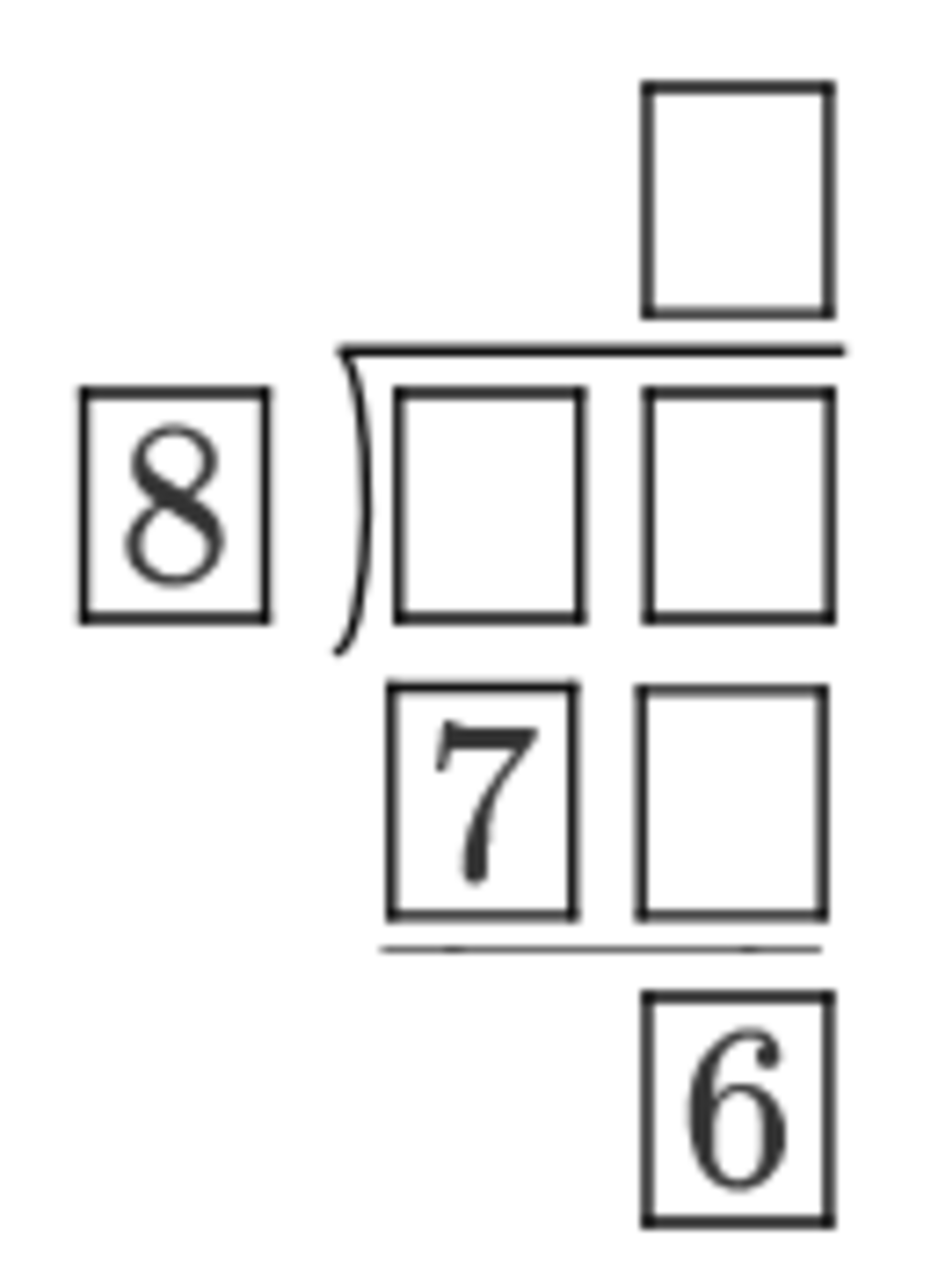Blanks In Division
Logic
Level
1

There are 4 missing numbers in the long division above.
Which of the following numbers were not used to complete this long division?
6
7
8
9
This section requires Javascript.
You are seeing this because something didn't load right. We suggest you, (a) try
refreshing the page, (b) enabling javascript if it is disabled on your browser and,
finally, (c)
loading the
non-javascript version of this page
. We're sorry about the hassle.
I got to admit that I got inspired by Agnishom's other problem recently .
Let me color these boxes first and I'll show the relationship between each of these boxes:
0 0 8 \enclose l o n g d i v 0 0 7 0 6
We have
[1] : 8 × 0 = 7 0 , and
[2] : 0 0 − 7 0 = 6 .
Let us solve [1] first: The only 2-digit multiple of 8 that begins with 7 is 7 2 = 8 × 9 . So the digit that represents the red square is 9, and the digit that represents the green square is 2, 8 × 9 = 7 2 .
And for [2] : 0 0 − 7 2 = 6 . Equivalently, we have 0 0 = 7 2 + 6 = 7 8 .
We can now complete the long division, 0 9 8 \enclose l o n g d i v 7 8 7 2 6
Thus, the only unused digit in the options is 6 .